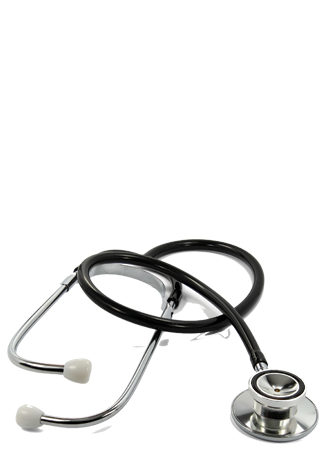
On the way to a paperless office
Automating the processing of incoming invoices and invoice verification at the University Hospital Cologne
DiALOG Award Winner 2016 Werner Buser, Head of Finance and Administration at Cologne University Hospital
Published in: DiALOG - THE MAGAZINE FOR ENTERPRISE INFORMATION MANAGEMENT | MARCH 2016.
The Business Unit Finance of the University Hospital Cologne comprises accounting, service accounting as well as the administration of third-party funds of the University Hospital Cologne. In addition, accounting for its subsidiaries is performed centrally there. One of the core tasks is the processing of incoming invoices: Approximately 155,000 invoices are received by the University Hospital each year, of which 100,000 are processed by the central accounting department, 30,000 by DFS (third-party funds, grants, donations), and another 25,000 by the subsidiaries.The invoices are processed much faster and more transparently with the new software than before.The primary goal here is to reduce the processing effort and cash discount losses. Before automation, clerks had to prepare all incoming invoices and write the vendor and account assignment on the document. The data was then entered manually into SAP.

sorted and put into the payment run. A time-consuming process in which it happened time and again that an invoice was posted but could not be found immediately and therefore had to be blocked.
The lack of transparency proved to be another problem, because it was not possible to keep track of how many invoices were open. The exchange of experience with colleagues from other university hospitals provided the solution. A suitable implementation partner was found in the Heidelberg-based company tangro, which already had references at comparable institutions. The software tangro IM convinced with its easy handling and practice-oriented workflows. In addition, a fast implementation and the
and the price/performance ratio spoke in favor of this system. Furthermore, it was crucial that these solutions are SAP embedded and thus enable direct access to master and transaction data in SAP.
After an implementation phase of three months, the systems were in productive use in May 2013. The software is used by around 25 employees in the finance department for invoice processing.In addition, 150 employees are involved as processors in the various workflows. The incoming documents are scanned in the digitization center and are then available to the clerks in the electronic incoming book for further processing. If an invoice corresponds to the order and goods receipt data, it can be posted immediately, so that no more than one or two days pass before payment is made. If clarification is required due to price or quantity discrepancies or missing purchase orders or releases, the document is sent electronically directly to the responsible employees. The purchasing department, the technical operations department, which covers procurement for the facility and medical technology areas, and the pharmacy of the university hospital, which is responsible for ordering pharmaceutical goods, are integrated into the workflow. As part of a rollout, the individual clinics and institutes will gradually be integrated into the workflow.
Once the documents in question have been checked, corrected and approved, they are returned to the accounting department. This works better than before thanks to electronic processing, so that bookings can now also be made more quickly in the event of a dispute.
The inbound ledger makes it clear at all times how many documents are in circulation - an important point when it comes to greater cost efficiency. Thanks to the new software, the accounting department always knows exactly which invoices are currently being processed, how many of them are in the workflow, and who is currently processing a document.
is currently being processed. At the same time, discount negotiations with suppliers can now be conducted in a more targeted manner because payment terms can be evaluated precisely. The clerks benefit from the fact that the processes for each invoice or purchase order can be traced exactly. Research has been simplified. When inquiries come from suppliers, the clerks can see exactly where the invoice
see exactly where the invoice is and why it has not yet been paid. The lengthy
One mouse click on the document and all the information is visible on the monitor. Since all receipts are available electronically, paper filing has been greatly simplified.
Thanks to this system, the University Hospital has made good progress towards a paperless office and efficient business processes.
University Hospital have made good progress towards a paperless office and efficient business processes.
With 270,000 patients per year, Cologne University Hospital has established itself as an efficient provider of healthcare services in the Rhineland. provider of healthcare services in the Rhineland. With its twelve subsidiaries, the medical facility is one of the most important employers in the region. It is one of the few university hospitals in Germany to have achieved continuous growth in recent years. This success has been made possible by the effective use of resources, which has been a priority. The Finance division contributes to this goal, among other things, through the automated processing of invoices.
www.uk-koeln.de
